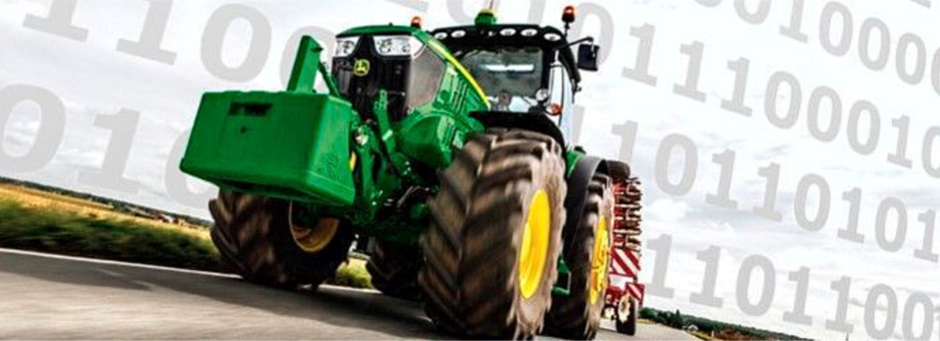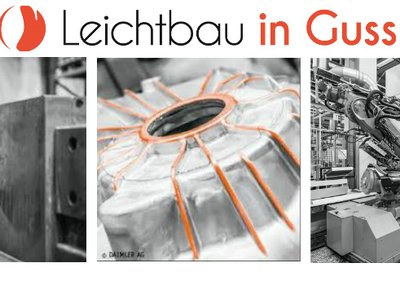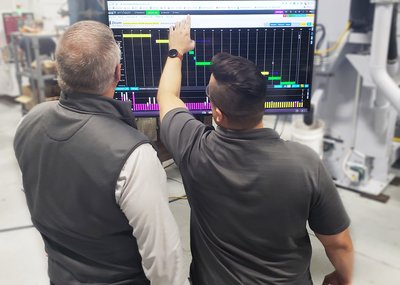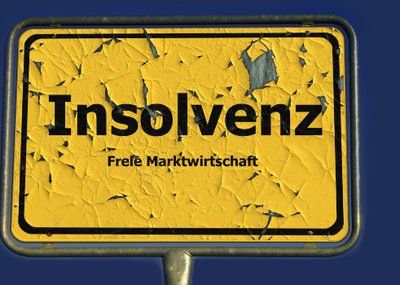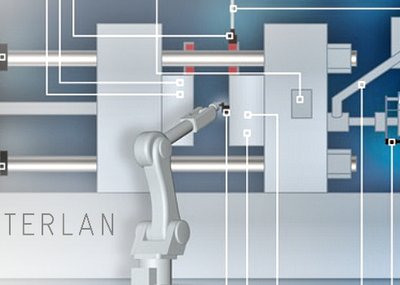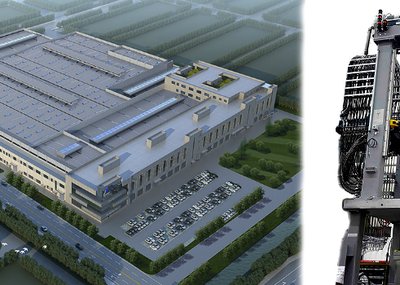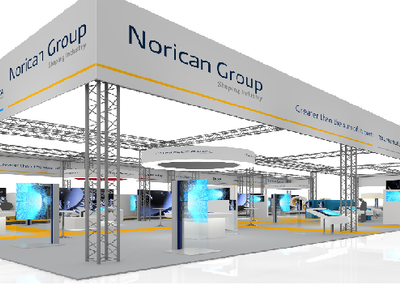Agriculture is in a climate dilemma: it is a greenhouse gas emitter, but at the same time it will be particularly affected by the effects of climate change. In particular, methane from livestock farming, fertilization of manure and solid manure fields, and nitrous oxide emissions from agricultural soils as a result of nitrogen fertilization are responsible for the high level of CO2 equivalent in agriculture.
Innovation as a solution
In addition to changing consumer behavior, technical measures can significantly reduce agricultural emissions. Precision agriculture has the potential to meet the growing demand for food while pursuing a more resource efficient approach to production. Basically, it's about the change from the previous guiding principle "bigger, faster, stronger" to "automated, user-friendly, more precise".
Highly automated machines with sensitive sensors and camera vision can not only record the location and condition of each plant, but also treat the soil and plant individually on the basis of the processed data. Instead of land-based treatment, farmers can target and reduce the amount of fertilizer and pesticides used, making them not only more sustainable, but also more cost-effective. Because every seed, every drop of water, every gram of nutrient counts.
Multifunctional machines with highly automated technology
Modern agricultural technology is not only indispensable in all areas of conventional and ecological agriculture - Farming 4.0 is also the key to the competitiveness of German agriculture. John Deere already provides innovative technologies for the sustainable management of the nutrient cycle, thereby supporting soil-conserving forms of agriculture. With the ExactEmerge seed drill, the manufacturer offers a model that can deposit centimeters at a maximum of 16 km / h. In later Beikrautbekämpung the chopping machine is controlled by a high-speed camera, without damaging the crops.
As a result, the mechanical plant care and the partial waiver of herbicides gets a new meaning. An even further reduction in herbicidal effort is possible with See & Spray Technology. AI-based cameras detect whether they are weeds or crops and apply the pesticides precisely. Savings of up to 60 percent are possible. Thanks to this precision technology, agricultural companies can design the value chain in detail.
The modern technology allows a constant documentation of actions taken. Farmers can use these specific data records and analyzes, combined with their own expertise, to make better and informed decisions in favor of more sustainable and profitable work. This is where sustainability and smart farming come together to promote agriculture that protects soil and crops while reducing operating costs and helping farmers stay competitive in a highly competitive market.
The autonomous e-agricultural machine hangs on the cable
Digital and autonomous technologies are changing agricultural technology. They not only improve the efficiency of the operation, but also contribute to environmental protection. After all, how successful farmers are in the future will no longer be decided on the field or in the barn.
But also through the use of renewable energies, the use of efficient methods and techniques as well as through a sustainable increase of the area and animal productivity, the existing climate protection potential of the agriculture can be opened up.
Typical of this is the GridCON project, in which John Deere, together with the University of Kaiserslautern and the B.A.U.M. Consult GmbH researches on an autonomous electric tractor. The project is based on the vision of a fully electrified digital agricultural farm (Smart Farm), which uses locally available and therefore independent of renewable sources of energy for self-supply and acts as an active partner of operators of electrical supply networks, thus climate gas, pollutant and noise emissions radically reduced and contributes to the development of sustainable agriculture and energy supply.
The GridCON project
The John Deere Research Tractor is an unusual solution for electrically powered agricultural machinery. The most striking feature of the GridCON - a large orange drum - is also the innovation. Because the machine does not draw electricity from a battery, but by cable. The cable tractor travels either by remote control or autonomously on previously programmed paths. The cable is automatically unwound and rolled up while driving. For this purpose, a robot arm places it exactly to the centimeter next to the first lane and picks it up on the next lane.
As a result, a field area of up to 16 hectares can be worked around a (fixed) connection point with the up to 1000 meter long cable. A central computer calculates the ideal lane and controls the drive as well as the entire robotics applications. The prerequisite for autonomous driving is accurate mapping of the working area in advance using GPS data. The farmer can control the process at any time via the remote control and intervene if necessary.
The GridCON weighs 8.5 tons and has 400 hp. This makes it twice as strong as a comparable tractor with an internal combustion engine (with the same weight). Prerequisite for this is a power source on the edge of the acreage. For example via a mobile transformer on the edge of the field, the cable of the machine is connected to the public power grid.
Electric drives are highly compact, highly efficient and highly precise controllable, have a high power density and offer a high degree of working and operating comfort (for example due to the lowest noise emissions). They are a key technology in the introduction of Precision Farming (Precision Farming) and allow not only to save fossil fuels, but also crop protection and fertilizers.
Source: Peter Pickel / Jürgen Schreier, www.industry-of-things.de

